 W
WNelson Wilmarth Aldrich was a prominent American politician and a leader of the Republican Party in the United States Senate, where he served from 1881 to 1911. By the 1890s, he was one of the "Big Four" key Republicans who largely controlled the major decisions of the Senate, along with Orville H. Platt, William B. Allison, and John Coit Spooner. Because of his impact on national politics and central position on the pivotal Senate Finance Committee, he was referred to by the press and public alike as the "general manager of the Nation", dominating tariff and monetary policy in the first decade of the 20th century.
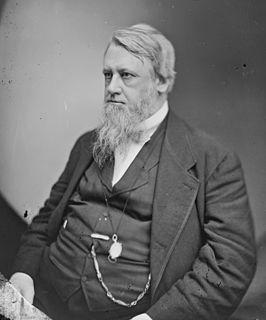 W
WHenry Bowen Anthony was a United States newspaperman and political figure. He served as editor and was later part owner of the Providence Journal. He was the 21st Governor of Rhode Island, serving between 1849 and 1851 as a member of the Whig Party. Near the end of the 1850s, he was elected to the Senate by the Rhode Island Legislature and was re-elected 4 times. He would be twice elected to the Senate's highest post as President pro tempore during the Grant administration, and served until his death in 1884.
 W
WRichard Arnold was a career U.S. Army officer who served as a brigadier general in the Union forces during the American Civil War. His artillery helped force the surrender of two important Confederate towns, including Mobile, Alabama.
 W
WSamuel Greene Arnold, Jr. was a United States Senator from Rhode Island born in Providence. He received his early education under private tutors, then graduated from Brown University in 1841 and the law department of Harvard University in 1845, gaining admission to the bar that year. He was a lawyer and historian and was a trustee of Brown University from 1848-80.
 W
WWilliam J. Babcock was an American soldier who received the Medal of Honor for valor during the American Civil War.
 W
WJoseph Pope Balch was an American businessman from Rhode Island who served as an officer in the Union Army during the early months of the American Civil War.
 W
WSullivan Ballou was a lawyer and politician from Rhode Island, and an officer in the Union Army during the American Civil War. He is remembered for an eloquent letter he wrote to his wife Sarah a week before he was mortally wounded in the First Battle of Bull Run. He died a week after the battle.
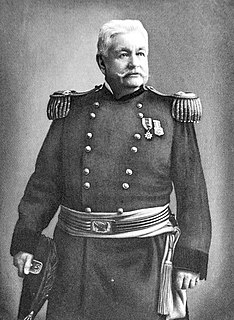 W
WZenas Randall Bliss was an officer and general in the United States Army and a recipient of the Medal of Honor. He formed the first unit of Seminole-Negro Indian Scouts, and his detailed memoirs chronicled life on the Texas frontier. He was the father of Rhode Island Lieutenant Governor Zenas Work Bliss.
 W
WCharles Ray Brayton was an American politician and lobbyist. A Republican, The New York Times called him the "Blind Boss of Rhode Island," drawing parallels with New York City's disgraced political boss, William "Boss" Tweed.
 W
WAmbrose Everett Burnside was an American soldier, railroad executive, inventor, industrialist, and politician from Rhode Island. He served as the Governor of Rhode Island from 1866 to 1869, and as a United States Senator for Rhode Island from 1875 until his death.
 W
WAdin Ballou Capron was an American miller and politician from the U.S. state of Rhode Island. He served in the American Civil War and was a member of the United States House of Representatives.
 W
WSilas Casey was a career United States Army officer who rose to the rank of major general during the American Civil War.
 W
WKatherine Jane ("Kate") Chase Sprague was a Washington society hostess during the American Civil War. During the war, she married Rhode Island Governor William Sprague.
 W
WColonel George Earl Church, was an American civil engineer and geographer, famous as an explorer of South America.
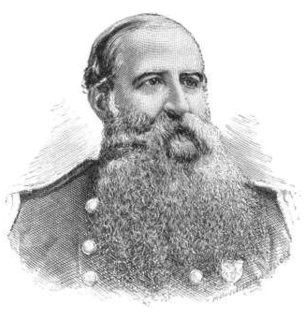 W
WCharles Henry Crane B.A. M.A. M.D. was an American physician and the 13th Surgeon General of the United States Army (1882–1883). He was the son of Colonel Ichabod B. Crane
 W
WCaptain James Madison Cutts Jr. was an American soldier who fought in the American Civil War. Cutts received the country's highest award for bravery during combat, the Medal of Honor, for his actions during the Battles of the Wilderness, Spotsylvania and Petersburg in Virginia in May and June 1864. He was honored with the award on 2 May 1891.
 W
WAmasa Mason Eaton was an American lawyer and politician.
 W
WGeorge Sears Greene was a civil engineer and a Union general during the American Civil War. He was part of the Greene family of Rhode Island, which had a record of distinguished military service to the United States. He first served in the Army from 1823 to 1836 after graduating second from his class at West Point. As a civilian, he was one of the founders of the American Society of Civil Engineers and Architects and was responsible for numerous railroads and aqueduct construction projects in the northeastern United States.
 W
WThomas Hayes was a United States Navy sailor and a recipient of America's highest military decoration, the Medal of Honor, for his actions during the Battle of Mobile Bay in the American Civil War.
 W
WWilliam Warner Hoppin was the 24th Governor of Rhode Island from 1854 to 1857.
 W
WCharles Tillinghast James was a consulting manufacturing engineer, early proponent of steam mills, and United States Democratic Senator from the state of Rhode Island from 1851 to 1857.
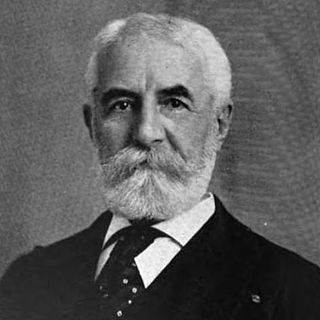 W
WOscar Lapham was an American lawyer and politician from the U.S. state of Rhode Island. He served as a member of the Rhode Island Senate and the United States House of Representatives.
 W
WCalixa Lavallée was a French-Canadian-American musician and Union Army band musician during the American Civil War. He is best known for composing the music for "O Canada," which officially became the national anthem of Canada in 1980, after a vote in the Senate and the House of Commons. The same 1980 Act of Parliament also changed some of the English lyrics. A slight alteration to the English lyrics was made again in 2018. The original French lyrics and the music, however, have remained unchanged since 1880.
 W
WNicholas Lear was a Quartermaster in the Union Navy and a Medal of Honor recipient for his actions in the American Civil War.
 W
WSamuel E. Lewis was a Corporal in the Union Army and a Medal of Honor recipient for his actions in the American Civil War.
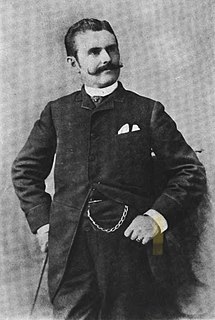 W
WSamuel N. Mitchell (1846–1905) was an American song lyricist and newspaperman who wrote lyrics for a number of popular songs in the 1870s.
 W
WCharles Harrison Page was a U.S. Representative from Rhode Island.
 W
WGeorge E. Read (1838–1910) was an American sailor who received the Medal of Honor for valor in action during the American Civil War.
 W
WElisha Hunt Rhodes was an American soldier who served in the Union Army of the Potomac for the entire duration of the American Civil War, rising from corporal to colonel of his regiment by war's end. Rhodes' illustrative diary of his war service was quoted prominently in Ken Burns' PBS documentary The Civil War.
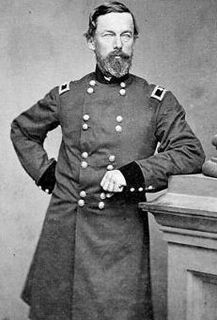 W
WIsaac Peace Rodman was a Rhode Island banker and politician, and a Union Army brigadier general in the American Civil War, mortally wounded at the Battle of Antietam.
 W
WHoratio Rogers Jr. was an American lawyer, judge, and Union Army officers in the American Civil War. He was the Attorney General of Rhode Island from 1864 to 1867 and again from 1888 to 1889. From 1891 to 1903, he served as an Associate Justice of the Rhode Island Supreme Court.
 W
WL. Lewis Sagendorph was an American inventor and leading manufacturer of sheet metal products in the late 19th and very early 20th centuries. He founded what later became the Penn Metal Company in Philadelphia, Pennsylvania.
 W
WThomas West Sherman was a United States Army officer with service during the Mexican–American War and the American Civil War. While some contemporaries mistakenly identified him as the brother of the more famous General William T. Sherman, modern scholarship notes that the two were not closely related.
 W
WJames Fowler Simmons was a businessman and politician from Rhode Island who twice served as a United States Senator, first as a Whig and then as a Republican.
 W
WWilliam Sprague IV was the 27th Governor of Rhode Island from 1860 to 1863, and U.S. Senator from 1863 to 1875. He participated in the First Battle of Bull Run during the American Civil War while he was a sitting Governor.
 W
WWilliam Rogers Taylor was a rear admiral of the United States Navy who served during the Mexican–American War and the American Civil War.
 W
WWilliam Greene Turner was an American sculptor.
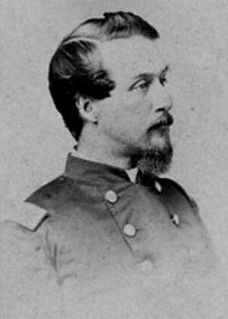 W
WFrank Wheaton was a career military officer in the United States Army during the American Civil War and Indian Wars. He also was military commander over south Texas during the Garza Revolution.
 W
WHenry Harrison Young (1841–1866) was a Union Army officer during the American Civil War who served as a spy.